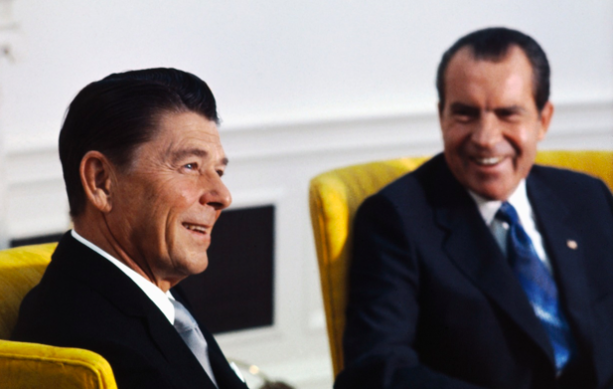CommentsGUEST WORDS--Last week, the historian Timothy Naftali revealed a 1971 conversation between Richard Nixon, then the president of the United States, and Ronald Reagan, then the governor of California, in which Reagan referred to African UN delegates as “monkeys” who are “still uncomfortable wearing shoes.”
Reagan was expressing anger over those African nations that voted to recognize the People’s Republic of China as the legitimate government of China, rather than Taiwan, which had held the seat since the UN was founded in 1945.
The bald racism of the remarks makes it hard to look beyond the words themselves and focus on the worldview they expressed. Reagan and Nixon were expressing their belief that the African delegates were rendered unfit for participation in world affairs by virtue of their ethnic background, a perspective that inevitably reflects on the rights of black people in the United States. No belief in American history has been more threatening to democracy, or consumed more American lives, than the certainty that only white people are fit for self-government, and the corresponding determination to exclude other citizens from the polity. A man acting on that belief last weekend drove six hundred miles from Dallas to El Paso to kill 20 people, in the name of stopping an “invasion” of Texas by the people who have lived in Texas since before there was a Texas.
It’s also a belief that continues to shape American politics, one held by the current occupant of the White House. President Trump’s racial conception of American citizenship, and his denigration of non-white immigrants from “shithole countries,” is but an extension of Reagan and Nixon’s logic. It forms the moral core of much of Fox News’s programming, which warns white Americans day in and day out that their country is being stolen by minorities. And it justifies the long-term efforts of Republican elites to rig democracy to their advantage, by limiting or diluting the political power of non-white Americans through gerrymandering and disenfrachisement. The significance of Reagan and Nixon’s remarks is not simply what they said. It is that their conversation shows that, although Trumpism is in some ways unique, what Americans confront today is not so nearly alien to their history and culture as many might assume. (Read the rest.)
-cw
















